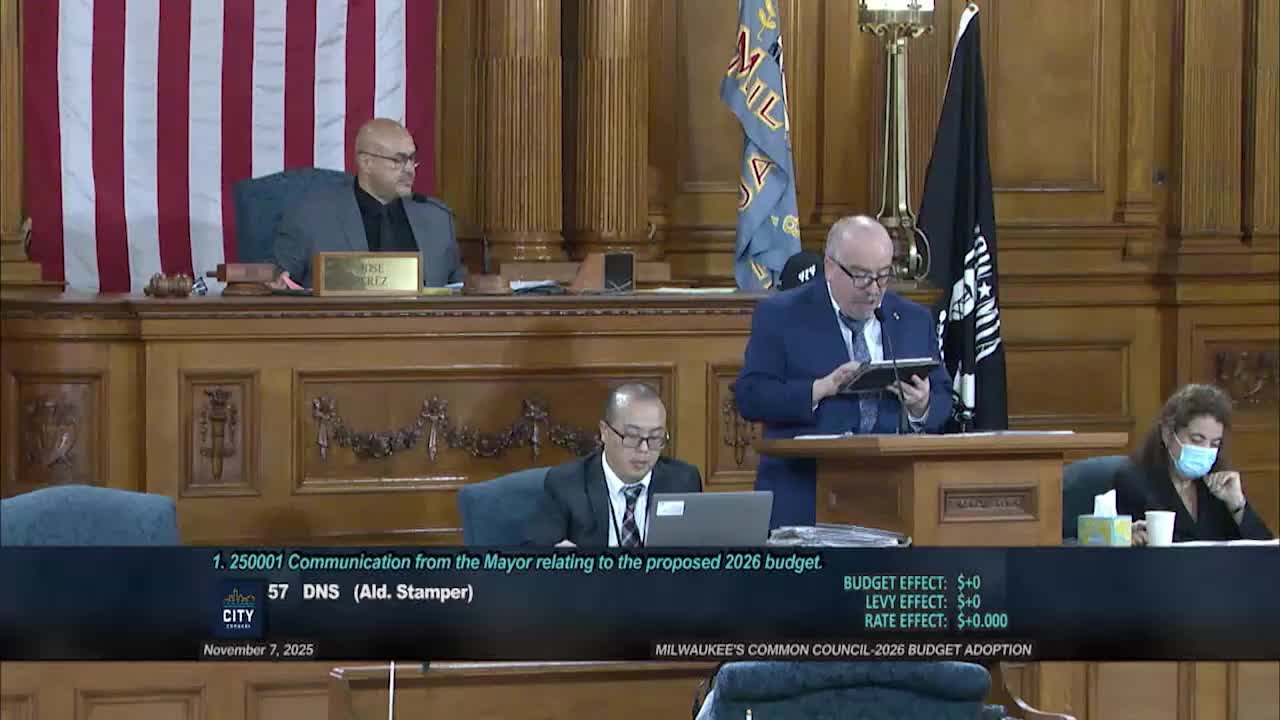Council approves vehicle-registration and street-lighting fee changes after vote and reconsideration
Get AI-powered insights, summaries, and transcripts
Subscribe
Summary
Council votes on multiple user fees included in the 2026 budget produced a mix of outcomes. After an initial failed vote and a formal reconsideration, the council approved an adjusted street-lighting fee and separately approved a change to the vehicle-registration fee following floor amendment and recorded roll calls.
The Common Council debated and voted on several fee measures that are part of the 2026 revenue plan. Two of the most visible, the street-lighting fee and the vehicle-registration fee (sometimes called the wheel tax), prompted hours of discussion about fairness, municipal service quality and the distribution of charges across nonprofit and private property owners.
Street-lighting fee: The council initially voted down an increase to the street-lighting fee; the clerk reported an initial tally of 5 ayes, 9 noes and 1 excused. Members later moved to reconsider the item, reopened debate, and on reconsideration adopted the revised street-lighting fee increase by recorded vote (final tally: 12 ayes, 2 noes, 1 excused). Supporters said fee revenue helps pay to replace aging conduit and fixtures that have caused widespread outages; opponents noted the visible service shortfalls and urged prioritizing repair and accountability.
Vehicle registration fee: Council members considered an amendment to the vehicle-registration fee. After debate and a substitution to adjust the amount, the council adopted an amended vehicle-registration fee measure by recorded vote (final tally on the amended item: 9 ayes, 5 noes, 1 excused according to the clerk).
Why it matters: Fees directly affect residents who pay them and determine funding streams for specific services. The street-lighting and vehicle-registration fees are dedicated revenue sources used to pay for lighting and local road or transportation needs.
What to watch: Departments must now present implementation details, timing and reporting consistent with the footnotes the council adopted during the budget process.
